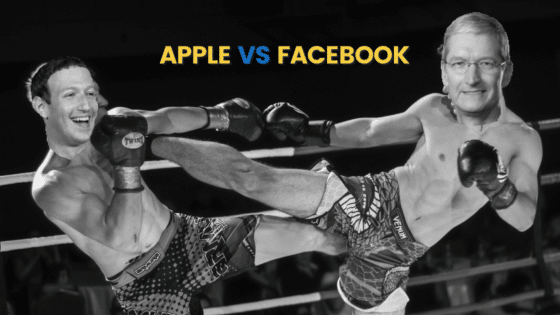Prof, walk us a little bit to when you first started.
My undergraduate degree is in Chemistry, specialising in the Human Life Sciences. I decided that I Iiked talking to people more than test tubes, so in 1996 I decided to go on and study for an MBA (Master of Business Administration). When I finished in 1998, I kick-started my career properly and moved to London to work in Advertising. For about 7 years, I had a number of roles, where I sold, planned, and bought advertising and sponsorship, and managed accounts and teams. Then, I decided to branch out in order to try and fulfil a need that I identified for commercially-minded professionals that can bridge the divide between theory and practice – which is why I now split my time between industry client work through my firm Dragonfly Black and being a university professor. Along the way, I completed a PhD in Global Branding and Culture, moved up the university ranks and have published over 200 pieces of work, spoken at over 100 conferences, and delivered training courses across the globe.

You radiate so much positive and fun vibe and I remember the first time I saw you in the flesh, I thought to myself, “this is the kind of professor we don’t see every day.” What is the story behind this cool, fun image and how receptive are people with this very unique persona which is not quite synonymous with Professors?
I concede that my career path is pretty eclectic and unusual, and I’ll share more of my other activities later. I also recognise that physically, I don’t conform with most people’s idea of what a professor or business professional looks like. In some ways that have become a daring challenge to change perceptions and hold onto being true to myself – because I know that there are plenty of people just like me, and the world is a better place when it accommodates a rich and diverse range of souls. In the short term, it’s probably worked against me, but over the years, once people have got to know me better, from time to time it’s helped – but you will always have cynics and haters. Having said that, you can’t have a career or go through formal education without being someone who has an understanding of rules, laws, theories, practices, and knows how to fit in. But what I will say though is that the root of the word ‘professor’ means taking a position and standing for something – and I hold those sentiments dear to me. Really, I want to be the educator, mentor, and manager that I wish I’d had more often. For example, up until my 30’s, all of my teachers and lecturers at school and university, and all of my music and sports coaches had been white. The first non-white educators were my PhD supervisor from Beijing, China, and my martial arts sensei from Japan. I think it’s important to keep that free-spirited fun creative ambition and open-minded attitude of a child; mixed with the patience, acceptance and contentment of an elderly person – it might not make me any wiser or richer, but you can sleep at night and look forward to what the next day will bring.

I read your book, Halal Branding in three days; amazing work, such in-depth information! What drives you to pen this topic?
I started researching Halal, the business of Halal, and consumption patterns back in 2008. This led me to the realisation that the marketing and branding of Halal were under-researched. I think a lot of the time what we see is ethnic localised Marketing; or simply a halal certification logo, which is ingredient branding, rather than full-blown branding; or some cosmetic religious messaging. The assumption appears to be that if you do this, then Muslims will consume. What hasn’t helped matters is that this interest has also been exploited by some attempting to ride a wave of media stories, bringing out things like halal socks or sex shops, or selling low-quality products above their value because of restricted dietary requests. For Halal Branding to work, it has to be understood as an alternative branding approach, in theory, and practice – not just a label on the back of the packet or products and facilities free from pork and alcohol, or even more conservative messaging, and that’s what I’ve tried to drive home in my book, ‘Halal Branding’. Halal Branding needs to be more about making the permissible (Halal) unmissable, fun and attractive – like all the great global brands do. So really the book is a collection of my thoughts and findings, and more importantly, how I think things could be done better for commercial and societal gains.
Can you tell us what Halal means in the current day context?
Halal has become synonymous with representing the everyday lived experiences of Muslims and perhaps the term carries less negative connotations than using words like ‘Islamic’ ‘Shariah’ or ‘Muslim’. It’s now being presented as an opportunity for economic wealth creation. Post 9/11, Muslims want a number of things. They don’t want to feel alienation; but at the same time, they want to challenge narratives and signal that they are educated, prosperous, and economically independent. The growing pains of what I think is a cultural post-colonial middle passage made further complicated by geopolitics, job insecurity, the rise in children from economic migrants in Muslim minority countries and converts, places challenges on how these factors are balanced. Also, social media and education are driving a greater level of awareness, so things like food provenance, animal welfare, and the impact of fast fashion are becoming particularly important. It’s interesting watching how a number of Muslims are also turning vegan or flexitarian. Food, drink and finance will drive most of the growth, because of the ingredient restrictions. There will also be a large growth in travel, hospitality, clothing, and education – but it becomes more difficult to ring-fence and identify what should be classified under the Halal/Islamic Economy sectors, because evidence seems to indicate that there are differing degrees of religious observance, nation interpretations, and what people are looking for. There are mainstream brands that offer these products and services and many people appear to be happy with or prefer picking what they want and leaving the rest, which feeds into my argument about Muslims not wanting to feel an alienation. Ultimately, Halal Branding should want to go mainstream, and if that’s the case you can’t build silo-ed brands that are by Muslims for Muslims.
Can’t think of a better person to ask this; in your opinion, what are the important steps to create an unforgettable brand identity?
I’m going to give you three slides that summarise my way of doing it…



There is so much talk about storytelling in business lately. How closely related is storytelling and branding.
Branding relies on good storytelling. However, some brands just tell stories or even worse tell. By that, what I mean is many brands simply transmit a stream of information, images, sounds and video and assume that consumers will interpret these as a coherent story. Often what happens is that brands either preach or their message is ambiguous and open to misinterpretation – or even worse just simply bland. Storytelling is both a science and an art – it has a structure, form, plot, and affects people intellectually and emotionally. I would recommend buying a book from literature or film studies that critically breaks down some of the classics and then learning about storytelling in a more formal way. For me, some business books are too superficial in their recommendations for how brands can tell stories. They present case examples as success stories and suggest doing the same. However, it may not work for you or that story has already been told. You have to look deeper and give this aspect of branding some time and thought.
Marketing or Branding, Prof?
Brands need marketing and Marketing needs Brands. But for me, Branding always wins, because a strong brand is the one thing that can move the needle far more towards enhancing and amplifying your identity, visibility, offering, promise, reputation, legitimacy, and legacy – and most importantly encourages people to pay a premium and forgive you when things go wrong. This works across the board, whether you state the country where your product is made, using a form of nation branding, right down to a professional looking for a job. One piece of advice that I’d give though is that this is a collaborative process – it’s about what people think and says about you when you’re not in the room, and not just about what you say. A saying that we have in my branding firm Dragonfly Black is, ‘don’t tell me, show me’.
You are a Professor in a few business schools, author, Editor-In-Chief and Consultant, amongst other things. We all have 24 hours a day but you seem to fit in more than the rest of us. How do you manage to juggle all these so well?
It’s all about working in blocks and locking down your diary. In the samurai manual, Hagakure, they say “Matters of great concern should be treated lightly and matters of small concern should be treated seriously. This is achieved through thinking about things previously and then handling them lightly when the time comes.” So what I’ve learned is that you have to just put your head down and put in the work. Try not to stress yourself too much or talk yourself out of doing something – trust your training, experience and intentions, keep your eyes open, don’t be too dogmatic and live for the moment. But, make sure that you complete tasks at the earliest opportunity. As a fire chief once said to me, “it doesn’t matter what your role is, whoever is closest to the fire should hurry up and put it out”.
Growing up, who are your role models and why?
A bit of an eclectic mix really. I’ve been lucky enough to meet some of the first and top marketing professors, and I’m always picking their brains. My martial arts sensei Okimitsu Fujii, who recently passed away, had a profound effect on my attitude and how you can teach others. I love watching good public speakers and especially comedians, as they’re able to take risks, find a new way to explain everyday life that we often take for granted, and most importantly entertain and change our mood. Also, iconic individuals like Muhammad Ali, Jimi Hendrix, Bob Marley, Bruce Lee, Malcolm X, Daley Thompson, Steven Tyler, Stevie Wonder, Slash, The Beatles, Chris Cornell, Debbie Harry, Rza, and Toshiro Mifune deserve a shout out.
Hard to imagine you having a day off; so, whenever you do have one, what are your go-to activities?
I used to be a professional musician – so I like to unwind by playing my bass guitar. Back in the days I played bass and performed vocals in the studio, on television, and live at concerts for a number of bands – ranging from rock, grunge, Hip hop, Drum ‘n’ Bass, and Asian Underground. Highlights were playing on the BBC, at Glastonbury music festival, and recording songs and character voices for the some of the Grand Theft Auto video games. As a schoolboy, I made the national squad for rugby and some of my teammates went on as adults to win the World Cup for England. Now, I’m happy to save my ears, nose and bones from rugby by slouching in my couch and watching games on television. But I still practice martial arts and am a 4th Dan in Iaido and 3rd Dan in Kendo. Also, I love trying new foods and drinks.
Where and how can you be contacted?
You can find me on LinkedIn, Twitter, Instagram and my website here: www.drjonwilson.com
Any parting words, Prof?
In one of his songs, Bob Marley asked, ‘could you be loved and be loved?’. I think a lot of marketing is about understanding emotions in both a very deep and superficial way – and love is perhaps the most powerful of all emotions. So when you manage or market to people, think about what will enhance their feelings of love and happiness. When you build a brand, make it as human as possible, and look to befriend your customers. If you can do that, then you will remain relevant and will have a sustainable business.


















